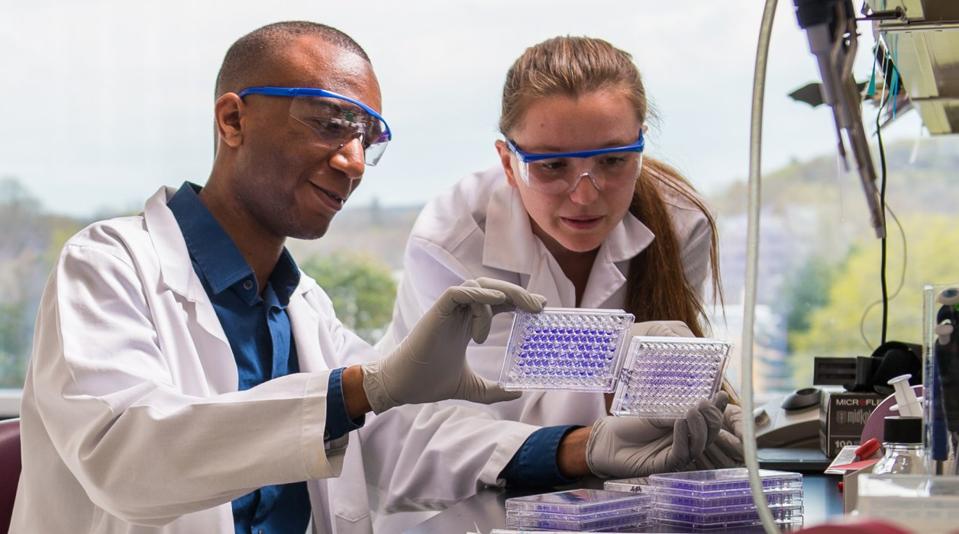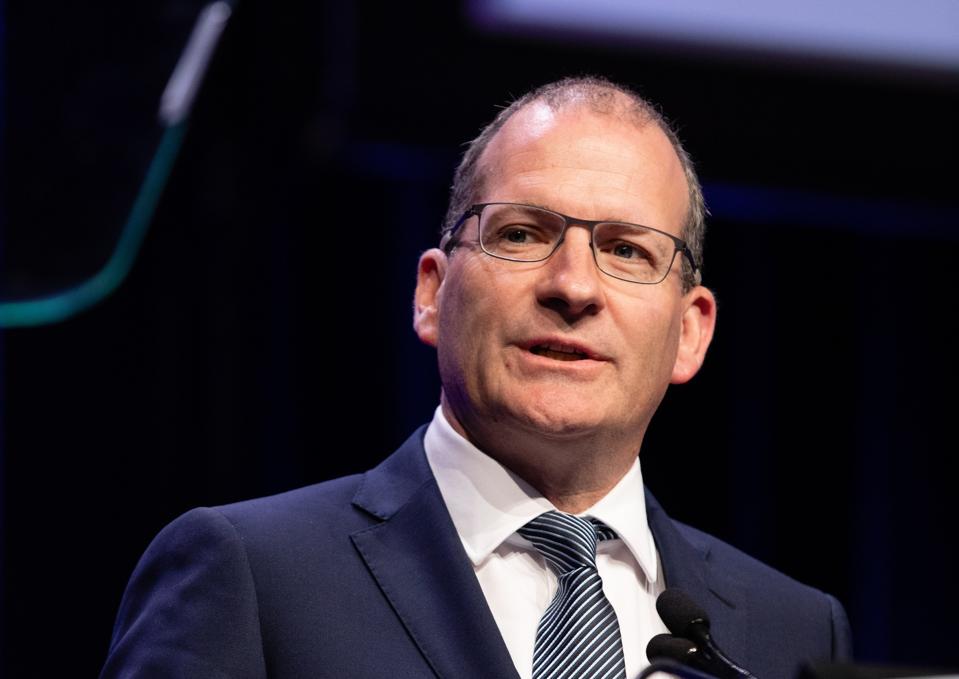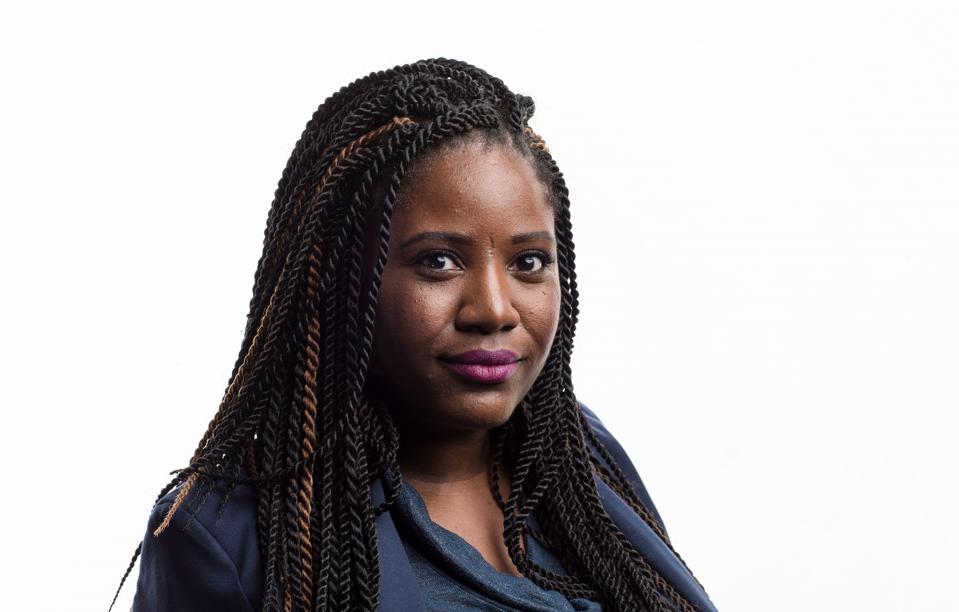How Has The Covid-19 Pandemic Impacted Cancer Research?

How has the pandemic affected cancer research?
getty
The outbreak of the SARS-CoV2 coronavirus that began slowly in Wuhan, China a year ago, before quickly enveloping the world has had widespread, devastating effects on lives, livelihoods and entire economies. Although much focus has rightly centered on the impressive scientific research directly tackling the pandemic, including work tracking the virus, trialing treatments for Covid-19 and developing vaccines, the impact on many other areas of medical research have been less documented and may take several years to fully come to terms with.
Cancer, for example, is the second leading cause of death in the U.S., with the American Cancer Society projecting over 600,000 cancer deaths in 2020. Despite a raging Covid-19 pandemic, this is roughly a quarter of a million people more than died of Covid-19 last year in the U.S.
A survey of 239 cancer research scientists in the U.K. in November of last year found that the researchers estimated that their work would be set back by an average of 6 months. The same researchers also estimated that major advances would be delayed almost 18 months due to numerous effects of the pandemic including lab shutdowns, reductions in funding and barriers to enrolling patients on clinical trials.
In the U.S., restrictions and setbacks to research vary widely depending on location and nature of the work. Cancer research is also a highly diverse topic with research not only developing new treatments and testing them in clinical trials, but also studies looking at the health of people who have survived cancer and racial and social disparities which affect care and outcomes of people with cancer.
Forbes Health interviewed several cancer researchers in the U.S. about their experiences during the pandemic so far, asking how the pandemic has affected them and their work.
Dr. Wayne Lawrence, DrPH, MPH, Cancer Prevention Fellow, Division of Cancer Epidemiology and Genetics, National Cancer Institute, MD.
MORE FOR YOU

Dr. Wayne Lawrence (left), DrPH, MPH, Cancer Prevention Fellow, Division of Cancer Epidemiology and … [+]
State University of New York at Albany.
“My research is in the field of cancer epidemiology with an emphasis on minority and economically disadvantaged populations. My work lies at the intersection of biological susceptibility and inequities in health care delivery,” said Lawrence. “I am fortunate that I can work from home, as my research consists of analyzing large population-based data at a computer rather than working in a lab. However, the constant worry of family members becoming infected with Covid-19 pulls my focus away from my research often. This is intensified as I have family members that are essential workers in New York City,” Lawrence added.
Lawrence’s research aims to develop new approaches to cancer prevention and improvement of long-term cancer survival in minority and economically disadvantaged people, an issue brought into sharper focus during the pandemic as it is now well-known that these people also have the highest risk of contracting, and dying from, Covid-19.
“What is further challenging during this period is society’s grapple with structural racism in the U.S. The ongoing Covid-19 pandemic has made focusing on my work difficult with the constant concerns of infection among family and friends. Watching the country struggle to grasp how deeply rooted racism is in society has compounded this difficulty,” said Lawrence.
Academic researchers already experience high levels of burnout, stress and mental health difficulties compared to the general population and many are finding that the additional strain of the pandemic is compounding their abilities to run their research programs.
“I am still grappling with the extent to which the ongoing pandemic is impacting my daily life. At this point, I will be more productive when my family and friends have received the Covid-19 vaccine. The constant worry of loved ones becoming infected and dying from Covid-19, especially those living in areas with alarming increases in cases, makes it difficult to concentrate on projects,” said Lawrence.
Olivia Geneus, Ph.D. Candidate in Nanotechnology at State University of New York, Buffalo, NY.

Olivia Geneus, Ph.D. Candidate at State University of New York, Buffalo.
Alexander Harold
Geneus is working on a nanotechnology solution to deliver targeted therapies directly to a type of brain tumor called a glioblastoma multiforme (GBM), which has a very poor survival rate currently. Her campus at State University of New York in Buffalo was temporarily shut down during the first wave of the pandemic.
“With the abrupt campus lockdown including our laboratories, experiments that were conducted prior had to be immediately terminated without any plan as to how to proceed forward. Accessing our instrument centers to test our samples also became difficult due to the campus-wide social distancing guidelines. And on the front end, laboratory materials and chemicals now take much longer to ship when ordered,” said Geneus.
Geneus like many graduate students, helps to mentor and train other students earlier on in their careers, yet another aspect of research which was been disrupted.
“During the pandemic, it is quite apparent that virtual learning has decreased feedback and engagement from my students. I never want my students to feel isolated from their learning environment and experience. Additionally, as a graduate research mentor, my undergraduate mentees are unable to receive the laboratory and research experience that they would have normally been provided,” said Geneus.
However, an unexpected positive for Geneus was that the enforced time away from her lab gave her a chance to finish off some previous work.
“It is quite difficult to accurately estimate how much the Covid-19 pandemic has delayed my research progress. Obtaining accurate data from laboratory experiments that are conducted are the biggest factor driving such setbacks. However, what is in my control is the time spent on completing my first-author research paper for publication,” said Geneus.
Dr. Christopher Sweeney, MBBS, medical oncologist at Dana-Farber Cancer Institute in Boston, MA.

Dr. Christopher Sweeney, medical oncologist at Dana-Farber Cancer Institute:
American Society of Clinical Oncology
Dr. Sweeney is a practicing oncologist and professor at Harvard Medical school. His research mainly focuses on international phase III trials for men with prostate cancer. In April 2020, the international team had just launched a new clinical trial to test out a new therapy for a particular type of prostate cancer and had to move quickly to modify the trial so that patients could still participate.
“The global team convened and modified the trial in accordance with the relevant government regulations to allow tele-health visits and delivery of drugs to patients homes and so minimize in-person visits to a health care facility while maintaining the ability to safely monitor patients and deliver the care needed. We also adjudicated that some visits were still essential and ensured isolation protocols were in place so patients could still get the treatments designed to manage their advanced prostate cancer. It took some quick yet judicious thinking and adjustments and in the end has proven to be a successful model and allowed the safe continuation of research that has the potential to decrease the chance men will die of prostate cancer,” said Sweeney.
Dr. Erica T. Warner, ScD MPH, Assistant Professor of Medicine, Massachusetts General Hospital and Harvard Medical School in Boston, MA.

Erica T. Warner, ScD MPH, Assistant Professor of Medicine, Massachusetts General Hospital and … [+]
Erica T. Warner
Dr. Warner’s research focuses on breast cancer risk factors and racial disparities in breast cancer treatment, diagnosis and survivorship, as well as ways to improve patient care in these areas.
“I had several projects, including a American Cancer Society and Pfizer funded study on breast cancer survivorship in Black women, that were ready to launch right when all observational research was halted in March. Those projects have been significantly delayed by the pandemic because of the stoppage, and then the time it took the redesign them to recruit and enroll participants and conduct the study remotely,” said Warner.
Warner estimates that her group’s projects have been delayed approximately a year, so far, by the pandemic. However, like many researchers, Warner has also created projects to address problems caused by, or exacerbated by the pandemic.
“We conducted a national survey in partnership with several breast cancer advocacy organizations to understand from the patient perspective how the pandemic has affected breast cancer diagnosis and treatment. I’m also working with several collaborators to use large institutional databases to see how screening rates have declined as a result of the pandemic, and to better understand how to bring women back to care,” said Warner.
Dr. Elizabeth Wayne, PhD, biomedical engineer at Carnegie Mellon University in Pittsburgh, PA.

Dr Elizabeth Wayne, biomedical engineer at Carnegie Mellon University.
TED
Dr. Wayne recently started her own research group and focuses on studying immune cell interactions with biomaterials for the purpose of drug delivery, diagnostics, and drug discovery.
“My work is heavily experimental and as such the reductions in density [of people] requirements have made it challenging to schedule and conduct laboratory experiments. Moreover, I am an early career professor—I started my position in August 2019—my lab is so young we are still in a training phase. Being in close proximity to someone outside of your household for prolonged periods of time is the one thing you aren’t supposed to do and yet it is exactly the thing that I need,” said Wayne.
Wayne, like many other researchers also has academic teaching and mentoring duties, which have been severely affected by the ongoing pandemic. The need to pivot largely to virtual learning solutions has created many challenges, especially for students studying sciences as many programs require hands-on laboratory-based experience.
“Postdocs, graduate students have felt like they were in a holding pattern and this has uncovered or exacerbated physical, social and mental health challenges. I also enjoy mentoring undergraduates, but it has been very challenging providing meaningful research experience. Myself along with other colleagues have pivoted to creating virtual lab experiences and I believe this is something that could have great utility even after the pandemic. Nonetheless, I absolutely worry about how this will affect students’ ability to demonstrate their capacity for research, something that is valued if not required for admission into STEM PhD programs,” said Wayne.
